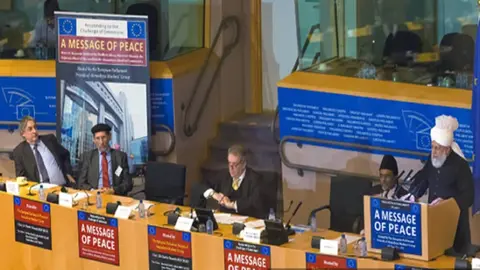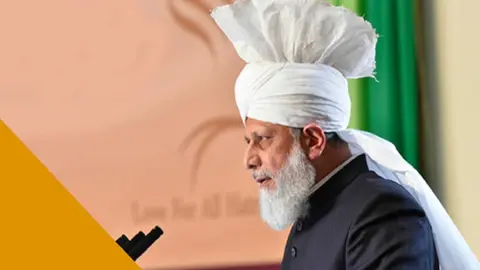A path to peace: just relations between nations (II)
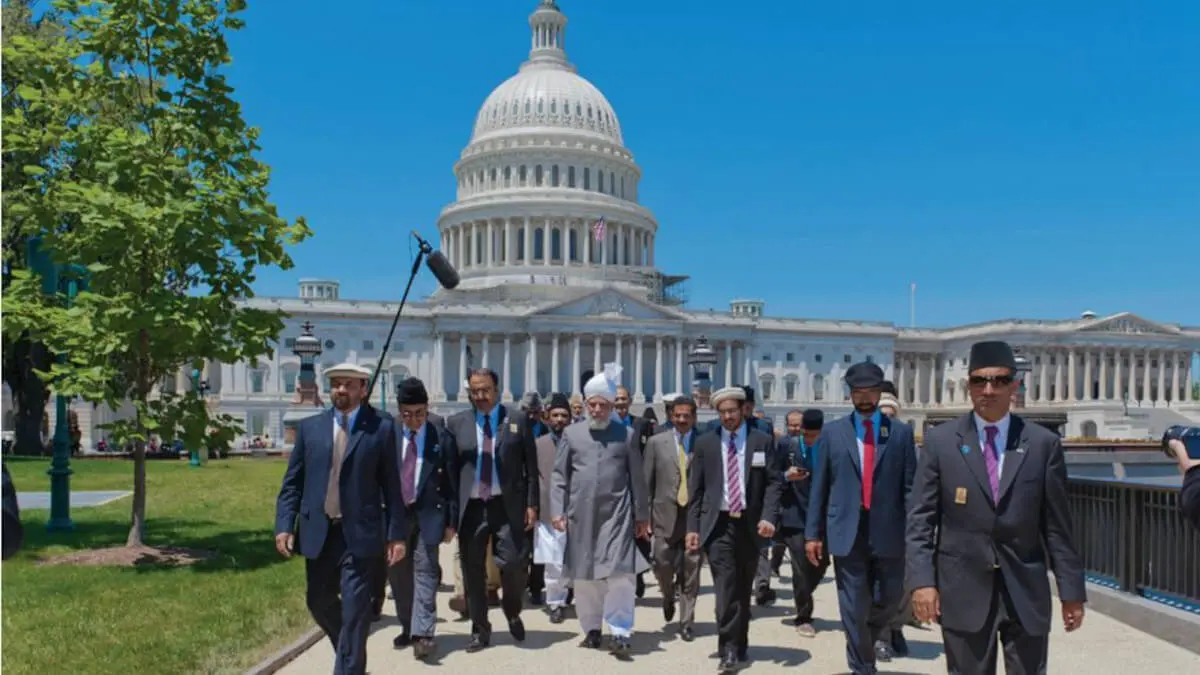
(This installment is a continuation of the previous "A Path to Peace. Just relations between nations (I)" which you can find in last week's publication).
However, today we are faced with a division and separation between powerful and weak nations. Take for example the United Nations itself, whose Security Council is composed of a number of permanent and non-permanent members. This division has proved to be a source of concern and frustration, reflected in the protests of certain member states at this inequality. Islam imparts the doctrine of absolute justice, and equality in all respects; and in this regard we find another important guideline in Chapter 5, Verse 3 of the Holy Quran, where it is stated that to fully meet the demands of justice it is necessary to treat with fairness and equity even those who transgress all bounds in their hatred and enmity. The Holy Quran teaches that goodness is to be accepted wherever it comes from and whoever advises it; and sinful and unjust behaviour is to be rejected, wherever it comes from and whoever advises it.
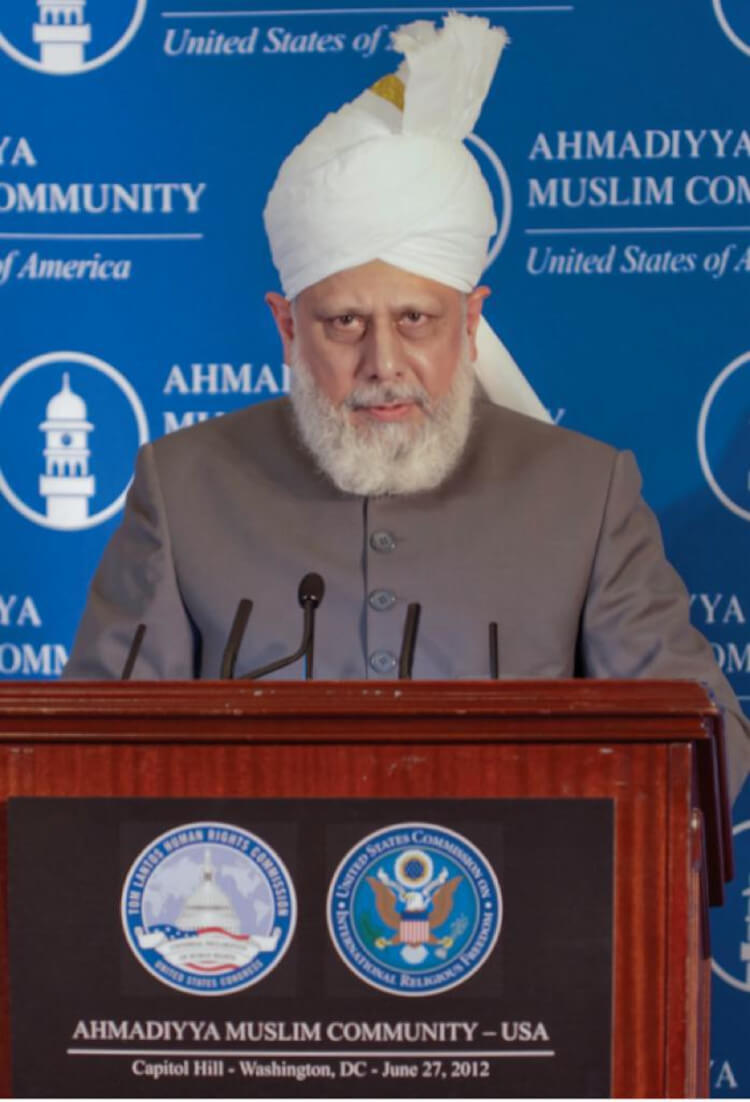

"And let not the enmity of a people who hindered you from entering the Sacred Mosque incite you to transgress. Rather help one another in virtue and piety." (5:3)
A question that arises spontaneously is: what is the degree of righteousness required by Islam? In chapter 4, verse 136, of the Holy Quran it is stated that in order to uphold justice and truth, one must testify, if necessary, against oneself, one's own parents or one's dearest relatives. The powerful and rich countries should not usurp the rights of the poor and weak countries in order to preserve their own rights, nor should they deal unjustly with them. On the other hand, the poor and weak nations must not harm the rich and powerful nations wherever the opportunity presents itself. On the contrary, both nations should strive to relate to each other by adhering to the principles of justice. This is an issue that is of crucial importance in the maintenance of peaceful relations between countries.

"O you who believe! Be strict in the observance of justice, acting as witnesses for the cause of Al'lah, even if it be against yourselves or against your parents and relatives. Whether the person is rich or poor, Al'lah is more attentive to both than you are. So do not follow the base desires so that you may act justly." (4:136)
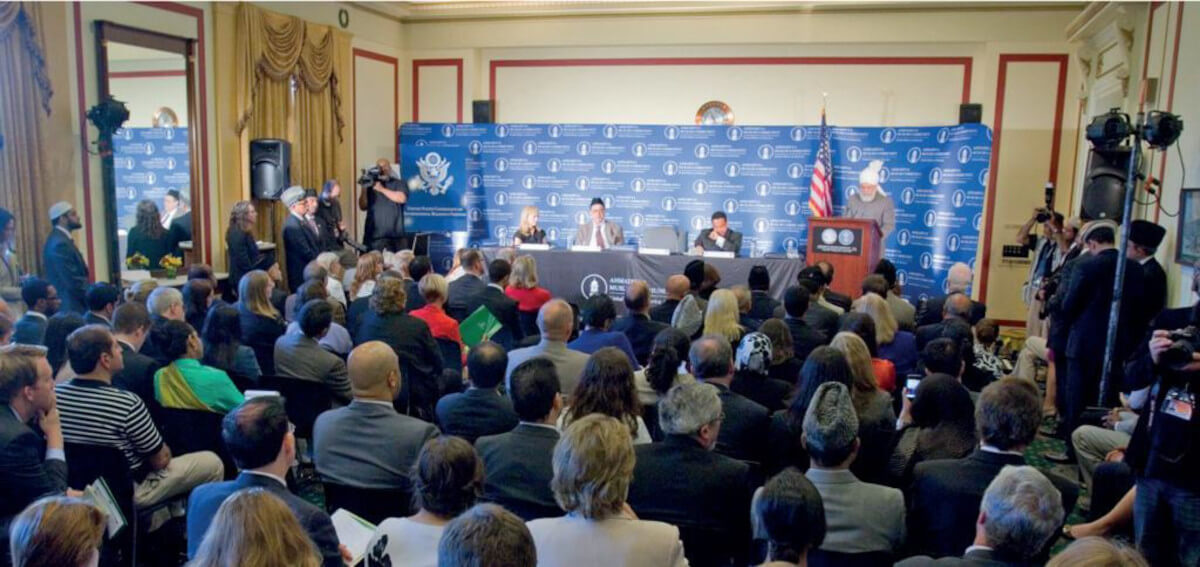
Verse 89 of Chapter 15 of the Holy Quran provides another necessary requirement for establishing peace between nations based on justice. It holds that neither party is to look greedily upon the resources and wealth of others, nor to take or unjustly appropriate the means of another country under the false pretext of providing it with aid or support. Governments must not, therefore, take advantage of other nations on the basis of the provision of technical expertise, or by unfair contracts or trade treaties. Similarly, neither should they take control of the natural resources of developing countries on the pretext of providing them with know-how or assistance, but should provide disinterested help to uneducated people or nations who need to be taught how to properly use their natural resources.

"Do not turn your gaze with greediness to the transitory pleasure which We have bestowed upon some of their groups." (15:89)
Next, nations and governments should always serve and help the less fortunate countries. However, such service should not be for national or political gain, nor serve as a means to satisfy vested interests. It is true that over the last six or seven decades the United Nations has developed numerous programmes and foundations to help poor countries to progress and for this purpose has explored their natural resources; but, despite these efforts, none of the countries concerned has reached the level of a developed country. One of the reasons for this is undoubtedly the widespread corruption in developing countries. But to my regret, I have to say that the developed nations negotiate with these governments in order to further their own interests; they continue to enter into trade agreements, international aid and trade contracts, with the result that the frustrations and anxieties of the poor and disadvantaged sections of these societies only grow, culminating in rebellions and internal unrest. Poor people in developing countries are so frustrated that they rise up against their own leaders and the great powers, and this has encouraged extremist groups to take advantage of the situation by encouraging people to join their groups and support their hate-filled ideology. All this has ultimately culminated in the destruction of world peace.
Islam has drawn our attention to various means of achieving peace. It requires absolute justice, that the testimonies of all be true, that envious glances directed at the wealth of others be abandoned, further requiring developed nations to put aside their vested interests, and to help and serve the less developed and poorer nations altruistically and in a selfless spirit. Observance of all these factors will establish peace.
If, in spite of all these measures, one country transgresses all limits and attacks another in order to gain unjust control of its resources, the other countries must take action, always just, to stop such cruelty.
The circumstances for taking such action based on Islamic teachings are detailed in Chapter 49 of the Holy Quran, which teaches that when two nations dispute and come to war, the other governments should advise them in favour of dialogue so that they can come to an agreement and reconcile on the basis of a negotiated settlement. If one side still does not accept the terms of the agreement and continues the war, the other countries should unite to confront, fight and stop the aggressor; and, when the aggressor is defeated, and accepts negotiation, both sides should work together for a lasting peace and reconciliation agreement. Harsh and unjust conditions should not be forced on such nations, for they will eventually give rise to unrest that will grow, spread and culminate in more disorder. When a third government tries to reconcile the two warring parties, it must act with absolute sincerity and impartiality, even if one of the parties speaks out against it. Therefore, the mediating government should not show its anger in such situations, nor should it seek revenge, nor should it act unfairly. Each party must preserve its due rights.
Thus, for the demands of justice to be met, governments negotiating an agreement must not seek to defend their own interests, nor seek to obtain undue benefits from those countries. They should not interfere with or put unfair pressure on the countries in question, or impose unnecessary and unfair restrictions on their natural resources, as this unfair practice does not help to improve relations between nations.
Given the limited time at my disposal, I have only briefly mentioned a few points. If we wish to establish peace in the world, we must put aside our personal and national interests for the greater good, and establish relations based on their integrity in justice. Otherwise, and some of you will agree with me, the alliances and blocs that will form in the future - or perhaps I should say that they have already begun to form - will make it very likely that disorder will continue to increase in the world, culminating in great destruction, the effects of which will undoubtedly last for many generations to come. That is why the United States, as the world's greatest power, must play its part and act with full justice and with all the good intentions I have described. If it does so, the world will forever remember, with great admiration, its immense efforts. I pray to God that it will be so.
Thank you again.
(lpbD) - God's peace and blessings be upon him.
(lpd) - peace be upon him.


